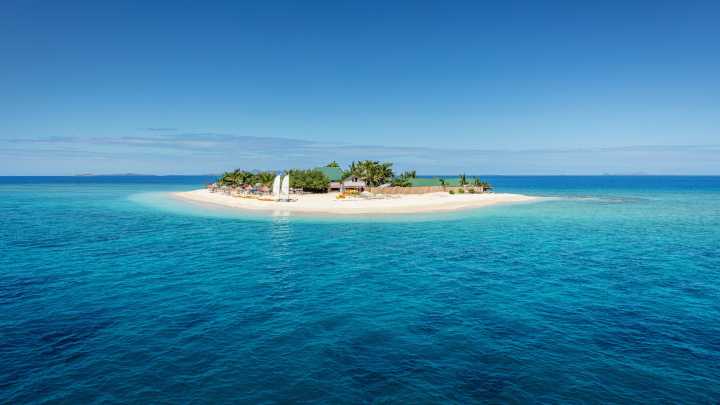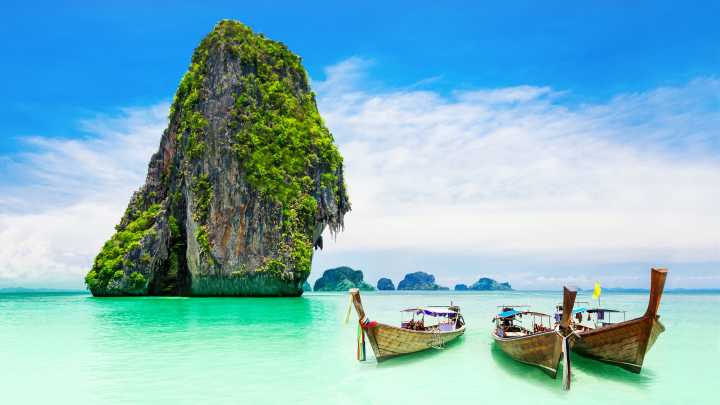Where are the safest places to travel when borders open up? Travel lovers everywhere are dreaming of their next destinations and hoping that 2021 will be a safe year to travel and explore the world. For travelers looking to venture outside of the United States, safety is a key concern. Which countries are safest to visit? What are the safest ways to travel?
In collaboration with our Head of Safety, Johann Jones, Tourlane has produced a guide to the safest places to travel once bans are lifted. By looking at key indicators such as COVID-19 cases, health regulations, population density, hours of sunlight, and flight connections to the USA, we produced a guide to help travelers assess risk factors of both countries that are currently open and countries that may open soon.
The 15 Safest Places to Travel When Borders Open

The table categories contain the original values in the respective unit of measurement. In order to standardize the data, each category was assigned a numerical value from 0-10, which was added up (see column “Total”) and forms the basis of the ranking list. The maximum possible number of points is 50. This data is updated on a weekly basis. Last updated: August 31st, 2020.

1. Fiji
Fiji enchants everyone that sets foot on its shores. If you’re looking for a secluded paradise, then Fiji is a great destination for you. Comprising more than 300 islands, Fiji is famous for its idyllic turquoise waters, velvety white beaches, and impressive coral reefs that are perfect for scuba diving. Fiji’s seclusion is part of its charm—yet there are still direct flights to the west coast of the USA.

2. Canada
For travelers looking for something closer to home, the Great White North is just a short journey away. Canada’s immense size and low density makes it an appealing choice for those looking to escape city life. The awe-inspiring lakes and mountains of Alberta and British Columbia are perfect for bikers and hikers during summer, transforming into top-rated ski resorts during winter.

3. Jordan
If you’re keen to explore the very best that the Middle East has to offer, then look no further than Jordan. Visit the ancient city of Petra and you’ll be transported back in time by one of the 7 New Wonders of the World. Step foot on mars by exploring Wadi Rum—this extraordinary desert and UNESCO World Heritage site is truly out of this world.

4. Uruguay
Uruguay is a shining star in South America, and has rightfully won international acclaim for its peace, democracy, openness, and healthcare. Located just north of Argentina, this compact country is a great destination for a beach vacation on the Atlantic Ocean, an island getaway on Gorriti, or a city break in the charming capital, Montevideo.

5. Thailand
Thailand offers something for every traveler. The mountainous north impresses visitors with its immense biodiversity, making it the perfect place for hiking and animal lovers. Further south, Thailand has more than 1,000 islands, which boast beautiful beaches as well as world-class diving. Urban foxes will love Bangkok, a pulsating metropolis teeming with opulent temples and lively markets.
As the coronavirus situation changes weekly, this guide is intended for guidance only and is based on data collected for each of the travel destinations as of August 31st, 2020. Please check with your Tourlane Travel Expert for the most up-to-date information for each destination. In addition to the countries listed above, we also continue to monitor popular travel destinations such as South Africa, Kenya, and Tanzania. For more information on the status of these countries, please contact us at service@tourlane.com .

More About Johann Jones
After working for the U.S. Department of Defense and NATO in Afghanistan and Iraq, where he advised senior executives on risk factors and scenarios, Johann Jones is now Tourlane’s Head of Safety & Sustainability. He has over 15 years of international development experience with a strong focus on governance, socio-economic development, and security in high and extreme risk countries.
Together with Tourlane’s Emergency Response Team, Johann Jones is responsible for the safety of Tourlane travelers at every step of their journey. He constantly monitors and assesses the risk factors at each Tourlane destination to ensure that travelers have up-to-date information on safety prior to their departure and also receive assistance during their trip.
How We Produced This Guide
The table categories contain the original values in the respective unit of measurement. In order to standardize the data, each category was assigned a value of 0-10, which was added up (see column “Weighted Total”) and forms the basis for the ranking list. The maximum possible score is 50. The following equation was used to scale the data from 0 to 10 (with 10 being the best value):
Score (i) = 10 * (x-minimum) / (maximum / minimum).
Covid-19 Analysis by 14-Day Case Notification Rate
The Covid-19 Analysis by 14-Day Case Notification Rate shows the number of cases reported in this country in the last 14 days per 100,000 people. A lower value equates to fewer new infections and therefore a lower likelihood of being infected with the coronavirus. We only included destinations with a rate of less than 30. The data was collected on August 31, 2020 based on the COVID-19 countries overview of the ECDC .
International Health Regulations Capacity Score
The International Health Regulations Core Capacity Index (IHR) is an annual report produced by the World Health Organization (WHO). Member States provide annual reporting data consisting of 24 indicators for the 13 IHR capacities. These are necessary in order to identify, assess, report and respond to risks to public health and acute events of national and international significance. The average capacity in the EU is 75%. Destinations needed a score of at least 30% in order to be taken into account.
Country Population Density
Population density is an indicator that determines the average number of inhabitants for a particular area (country, region, district). When creating the ranking, only travel destinations were taken into account that did not exceed a population density of 650 per square kilometer. Countries with a lower population density offer a lower chance of contagion.
Hours of Sunlight
Sunlight was factored into our calculation, as more sunlight hours equates to more time for outdoor activities and eating in the fresh air, instead of indoors, thus reducing the likelihood of infection.
Flight Connections
We only included destinations that can be reached from the United States either with a direct flight (corresponding to a score of 10 in the ranking) or a flight with only one stopover (corresponding to a score of 5 in the ranking). By avoiding layovers at airports, queues, and large crowds, the risk of infection is significantly reduced.
Other Requirements for Inclusion:
In addition to the categories stated above, the countries needed to meet the following specifications in order to be included in the ranking:
The country has implemented minimum standards against the coronavirus
Only countries that have tourism or government agencies that introduced minimum standards in response to the coronavirus were included in the ranking. These include hygiene regulations, distance regulations, capacity reductions, etc.
Limited capacity of sights and attractions
Only countries that have reduced the capacity of leading sights and attractions were included in the ranking, as this reduces crowds, queues, and the risk of infection.
Availability of boutique hotels and B&Bs
Only countries that offer small boutique hotels or bed and breakfasts were included in the ranking. By avoiding large gatherings of people in communal areas, shared pools, and buffets, the risk of infection to travelers is significantly reduced.
Self-drive or private guide options available
Only countries that offer visitors either a self-drive option or a private guide option were included for the ranking, as these trip types pose a lesser risk of infection.
Secluded travel options available
Only countries that offer remote more secluded travel options, such as national parks or larger outdoor areas, were selected. By avoiding large gatherings of people in highly frequented regions, the risk of infection is significantly reduced.
Cashless payment options
Cashless or contactless payment options in taxis, supermarkets, restaurants etc. were a prerequisite for the countries to be included in the ranking. Contactless payment is the most hygienic form of payment and therefore safer to travelers.
Source: Tourlane